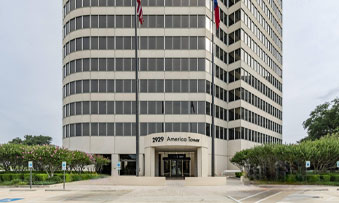Atlanta Neck Injury Lawyer
Workplace accidents, particularly those in industrial or physically demanding environments, can lead to significant and lasting injuries. Among the most common and debilitating are neck injuries. Whether these injuries are caused by a sudden traumatic event or developing gradually over time due to strenuous work conditions or repetitive tasks, a neck injury can profoundly impact your ability to work, manage daily life, and maintain your quality of life.
Navigating the aftermath of a serious neck injury at work in Georgia can be a complex and overwhelming task. You may face mounting medical bills, lost wages, and uncertainty about your future and ability to return to work. This is where experienced legal representation from the Atlanta Neck Injury Attorneys is crucial. Merritt & Merritt Law Firm has been helping injured individuals in Georgia since 1973 and our attorneys have extensive experience handling workplace injuries, including severe neck injuries. Call us at 404-975-1775 to discuss your case today for free.
Understanding Workplace Neck Injuries
Your neck is one of the most important parts of your body, and when it becomes injured, it impacts more than you think. It is a stable yet highly mobile structure that connects your head to your shoulders. It’s composed of seven vertebrae separated by discs, surrounded by muscles, tendons, ligaments, and nerves. Any injury to the neck can subsequently cause pain throughout the body and significantly affect your daily life.
Common symptoms of neck injuries include pain, soreness, stiffness, or a burning sensation in the neck. Some serious injuries can result in long-term pain and stiffness, chronic headaches or migraines, limited mobility, insomnia, or pain in other parts of the body due to nervous system damage. Recognizing these symptoms early is important for recovery, even if they are initially mild or have a delayed onset, so you can start your recovery as soon as possible.
How Workplace Neck Injuries Occur in Georgia
Neck injuries at work can happen in numerous ways. Some are the result of a single accident, while others develop gradually over time.
Typical workplace scenarios and activities that commonly lead to neck injuries include:
- Slips, Trips, and Falls: Falls are a leading cause of workplace injuries, including neck injuries. Falling from a height or on slippery surfaces can jar the head and neck, resulting in muscle strains or fractures.
- Lifting Heavy Objects: Jobs requiring regular heavy lifting put workers at risk of back and neck injuries, as workers may improperly lift an object that is too heavy and twist or strain the neck and back area.
- Repetitive Strain and Overuse: Many neck injuries stem from repetitive movements or prolonged awkward postures. Constantly bending the neck to view a computer screen, repetitive lifting, or long hours looking down can gradually injure the neck area. Repetitive stress injuries can lead to debilitating conditions, some of which do not present themselves for years after.
- Car or Truck Accidents: Collisions, including rear-end crashes, are common causes of whiplash and other severe neck injuries like cervical fractures or spinal cord damage. These can occur while driving for work, or driving while performing work related duties.
- Falling Objects: Being struck by falling objects can cause significant neck trauma.
- Defective Machinery: Malfunctioning equipment can directly or indirectly cause neck injuries.
Important Steps to Take After a Workplace Neck Injury
Taking the correct steps immediately after a workplace neck injury is crucial for your health and your legal rights.
- Seek Immediate Medical Care: Your health is paramount. Get medical attention right away, even for injuries that seem minor, as symptoms can appear later. Follow all doctor’s instructions and make sure to tell the doctor that the injury happened at work.
- Notify Your Employer: Report the injury to your employer as soon as possible. In Georgia, you must provide notice, at least verbally, within 30 days for workers’ compensation. Follow up in writing if possible to have proof.
- Collect Evidence: Safely gather as much information about the accident as you can. Take photographs or videos of the accident scene, equipment, and your injuries. Get names and contact information of any witnesses. Keep copies of accident reports, maintenance records, and documents related to medical bills and lost wages. Consider keeping a journal documenting your recovery and how the injury affects your daily life. Do not discard damaged property related to the accident.
- Contact a Qualified Attorney: Seek legal advice from an Atlanta neck injury lawyer as soon as possible. They can guide you, protect your rights, ensure deadlines are met, and fight for the compensation you deserve when you call them at 404-975-1775 for a free consultation.
Your Legal Options for Compensation in Georgia When You Work with an Atlanta Neck Injury Lawyer
If you’ve suffered a neck injury at work in Georgia, you typically have two primary legal avenues to pursue financial recovery: workers’ compensation and potentially a third-party personal injury claim.
Workers’ Compensation
Georgia’s workers’ compensation system is designed to provide benefits for work-related injuries or illnesses. It’s generally a “no-fault” system, meaning you can seek benefits if you were harmed while working, regardless of who was at fault. Workers’ comp can cover necessary medical expenses with no caps in Georgia, provide partial wage replacement if you miss work, offer disability benefits, vocational rehabilitation, and death benefits in fatal cases.
- To receive benefits, you must typically notify your employer of the injury within 30 days. While verbal notice is a start, proper documentation should be filed with the Georgia State Board of Workers’ Compensation. You generally have one year from the injury date to file a workers’ compensation claim. An attorney can help ensure these deadlines are met.
- In cases of very severe injuries, your injury may be classified as “catastrophic” under Georgia law, which can entitle you to lifetime medical treatment and weekly income benefits for life. The Atlanta neck injury lawyer team at Merritt & Merritt Law Firm can help determine if your injury qualifies when you call us today at 404-975-1775 for a free consultation.
Third-Party Personal Injury Claims
You may also have a personal injury claim against a third party if someone other than your employer caused the accident. This could involve a manufacturer of faulty equipment, a negligent contractor, a property owner responsible for unsafe conditions, or another party.
- Unlike workers’ compensation, you must prove the third party’s negligence to recover damages. However, damages can include compensation not typically covered by workers’ comp, such as medical expenses, lost income, property damage, and non-economic damages like pain and suffering, emotional distress, and loss of enjoyment of life. Punitive damages may also be available in severe cases of gross negligence.
The experienced Atlanta neck injury lawyer team can help you determine the type of recovery you are entitled to after an accident that caused a neck injury. The legal system can be very complex and confusing, so let the attorneys at Merritt & Merritt Law Firm help you today by calling 404-975-1775 for a discussion of your case.
Important Georgia Personal Injury Laws
If you pursue a personal injury claim in Georgia, two key legal concepts you need to know are the statute of limitations and modified comparative negligence.
- Statute of Limitations: There is a time limit for filing personal injury lawsuits in Georgia, generally two years from the date of injury. Missing this deadline typically means losing your right to claim compensation. Shorter deadlines may apply if a government entity is involved, so it is best to talk to an Atlanta neck injury lawyer today for free at 404-975-1775 to discuss what legal timeline your case has.
- Modified Comparative Negligence: Georgia follows a modified comparative negligence rule, which means that if you are found to be 50% or more at fault for the accident, you cannot recover any damages. If you are found partially at fault but less than 50%, your compensation will be reduced proportionally to your percentage of fault. For example, if you are 10% at fault and your damages are $100,000, you would receive $90,000. An attorney can work to minimize your assigned percentage of fault.
How an Atlanta Neck Injury Lawyer Help Independent Contractors
If you are classified as an independent contractor, you may face different hurdles that a regular employee may not face. As an independent contractor, you are generally not eligible for workers’ compensation benefits in Georgia. However, if you are injured due to the employer’s negligence, you may be able to pursue compensation through a personal injury claim. Proving negligence generally requires showing the employer had a duty to prevent the injury and should have known about the potential for harm. If you believe negligence played a part in your neck injury, or you have been misclassified as an independent contractor and should be considered an employee, an Atlanta neck injury lawyer at our firm is here to help you when you call us at 404-975-1775 to discuss your case for free.
Get the Legal Help You Deserve From an Atlanta Neck Injury Lawyer
A neck injury sustained at work can have significant and lasting consequences. You deserve proper compensation and support to cover medical expenses, lost wages, and other ways the injury impacts your life. Understanding your rights under Georgia law is crucial, but the legal process can be complex. Fortunately, you don’t have to navigate it alone. Let an experienced Atlanta neck injury lawyer at Merritt & Merritt Law Firm do the work for you and fight for the compensation you deserve. Call us today at 404-975-1775 for a free consultation.






